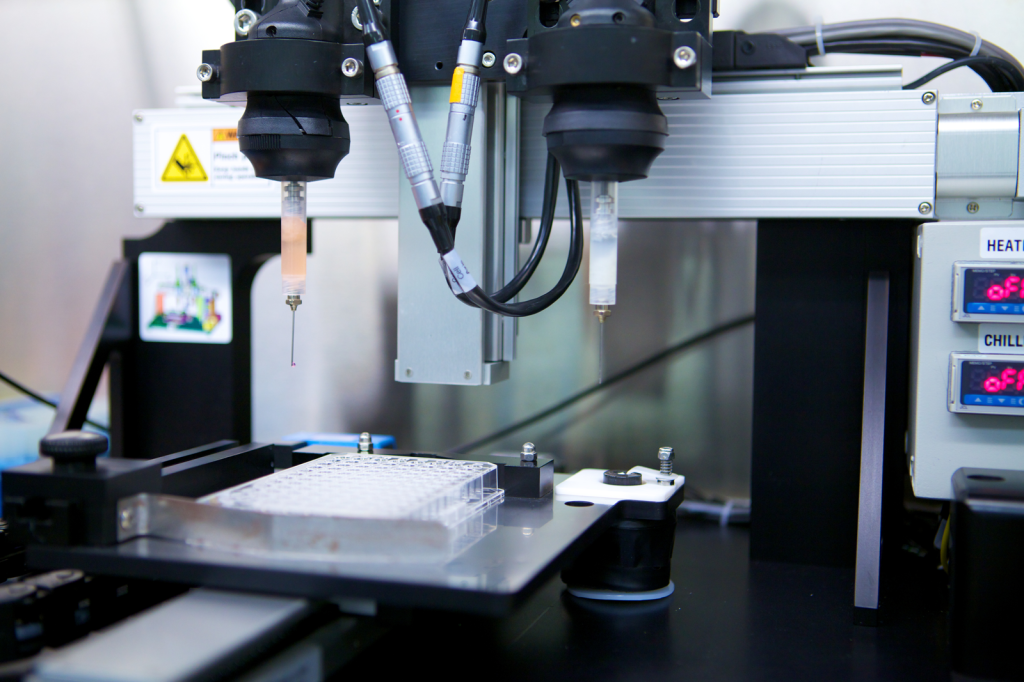Just after announcing the successful 3D printing of kidney cells, bioprinting firm Organovo has decided to add 3D printed skin to its portfolio of printable organ tissues. The company has signed a Research Collaboration Agreement with L’Oreal USA Products, Inc to 3D print skin models using their NovoGen Bioprinting Platform.
While the agreement gives L’Oreal exclusive rights to the models for use in the R&D and production of its own non-prescription beauty and skin care products, Organovo can still sell its skin tissues for use in pharmaceutical testing, therapy, and surgical transplants. The partnership will undergo three different phases: the initial development of the 3D printed skin tissue models, followed by validation, followed by commercial supply. Each step is contingent on L’Oreal’s decision of whether or not to move onto the next phase, as determined based on a set of performance criteria.
At every point along the way, L’Oreal will hand over its cash in the form of upfront payments and payments for deliverables from Organovo. Though the companies will negotiate a deal regarding Organovo’s exclusive commercial supply of the tissue models, tied to standard licensing and royalty agreements, no specific commercial terms have yet been disclosed.

Organovo has long advocated a future of 3D printed human tissues as a means for avoiding animal testing in research, as well as speeding up the delivery of new drugs to market through the use of human tissue models. What hadn’t previously occurred to me was that they might be used in the beauty and cosmetic industries, as well. At the moment, L’Oreal claims that it “no longer tests on animals any of its products or any of its ingredients, anywhere in the world. Nor does L’Oréal delegate this task to others.” The company does, however, state that “[a]n exception could only be made if regulatory authorities demanded it for safety or regulatory purposes.”
This exception has allowed L’Oreal to, in the past, manufacture cosmetic ingredients manufactured in China, which previously required animal testing for cosmetics development by law, while maintaining an animal-friendly image. Last year, however, that Chinese law was overturned. This new partnership, then, could allow the company to expand its own EpiSkin human tissue modeling research so that it may continue performing skin irritation testing, without relying on ingredients previously tested in China. What’s interesting, and a little disturbing in my mind, about this agreement is the exclusivity, hinting that L’Oreal may be able to tout the fact that its products are tested on 3D printed skin, leaving other cosmetic companies without the same experimental advantages. So, while it may be able to limit animal testing in its own house, it will limit the ability of other companies to use 3D printed tissues to test their products.

Leave A Comment